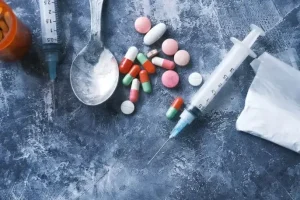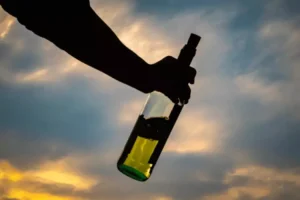
Seeking support from loved ones, therapists, or recovery groups ensures accountability and encouragement, helping you regain momentum toward sobriety. If you’re ready to take control of your drinking but don’t know where to start, True Self Recovery provides a compassionate and structured approach to alcohol addiction treatment. With personalized treatment plans, medical supervision, and evidence-based therapies, True Self Recovery ensures that individuals receive comprehensive care tailored to their unique recovery journey. By implementing strategies to manage anxiety and stress without relying on alcohol, you can take control of your mental health and enjoy a more fulfilling life.
Watch for withdrawal symptoms, even if you don’t think you’re a heavy drinker.
Anytime there is a family party, wedding, or any social event I always do a quick pre-plan of the situation. Acceptance is a big part of 12-step programs and many other self-help programs. One of the main reasons so many of us use drugs or alcohol is we can’t or don’t want to accept some part of the world. Your outlet can be one of these things or something totally unique to you.
Physical Health Improves

Behavioral therapies and counseling help individuals quit alcohol by addressing triggers, changing thought patterns, and building coping skills. Cognitive Behavioral Therapy (CBT) identifies drinking triggers, while Motivational Interviewing (MI) strengthens commitment to sobriety. Dialectical Behavior Therapy (DBT) helps manage emotions and stress. 12-step Facilitation Therapy encourages peer support through Alcoholics Anonymous (AA), and family or couples therapy repairs relationships affected by alcohol use. Combining therapy with medication and peer support increases long-term recovery success by treating both the physical and emotional aspects of alcohol dependence. Many individuals benefit from understanding the stages of recovery from alcohol, as it helps them navigate the challenges and progress toward lasting sobriety.
- They find it worth a try for the price and mention it provides an affordable, low-cost drinking cessation technique.
- If you’ve been drinking heavily, you may at first experience some withdrawal symptoms, including nausea, vomiting, shakiness and sweating.
- So we’ve been like, super close since then.
- You might notice better sleep quality and increased energy levels after just a week without alcohol.
Does quitting drinking ever get easier?

I’ve learned a huge amount about myself and how I want to spend my time. Going back to the hobbies reframing holidays in early recovery thing, I’ve also connected with lots of people – old and new – who share my passions and interests. These are people I have more in common with than a knowledge of which bars will still let you in after hours, and an ability to keep drinking in them without falling over. Some of these things are a little different now.
- You know, remembering that is, is just going to, it’s going to keep you centered.
- From finding a supportive community to having a “break glass in case of emergency” snack stash (because hunger is a sneaky trigger), we break down how to create one that works for you.
- Most people are also sleep deprived, even without alcohol.
Yeah, so Alcohol Free Life has been going for… Gosh, yeah. I can’t actually remember long term now. Yeah, and I think keeping a note of all of that’s really important, you know, actually noting down the benefits because can be easy to forget when that journaling, right, like exactly feel in the area. And at least when you get really frustrated.
Choose a go-to non-alcoholic drink
There are many small ways that you can handle tough situations when you are transitioning to an alcohol-free lifestyle. Whether these strategies work for you is something that you’ll have to try out Halfway house on your own. If you don’t have alcohol just waiting for you, you’re less likely to experience alcohol cravings — and that could cut down on your intake significantly. If you have roommates or family at home, ask them to work with you on this for at least a month.

But I mean, history does repeat itself. And, you know, the millennial generation, my generation Gen Z, I think we’re a lot more conscious about what we’re consuming, and sometimes we go overboard. And so, you know, when I think about, you know, and not whenever I say 50 years ago, I keep thinking, it’s like, 2000 Yeah, I’m like, crap, it’s 2021. Okay, like doing the math in my head. I’m like, so really, like seven years ago, like, I always reference like the 1950s, like mad men, you know, everyone’s smoking inside, everybody’s drinking right in the morning.
 (+34) 623 98 29 74
(+34) 623 98 29 74

